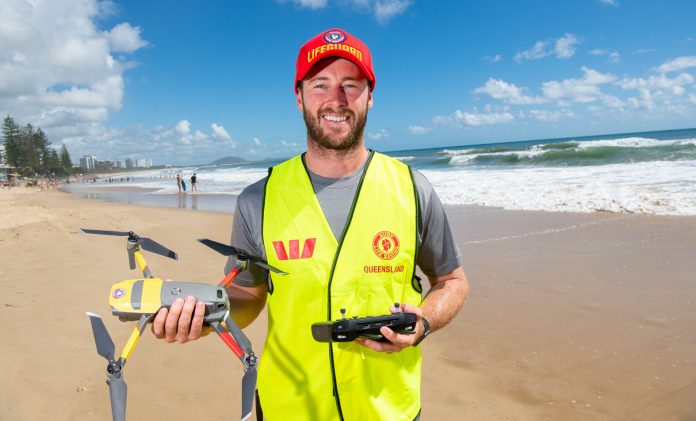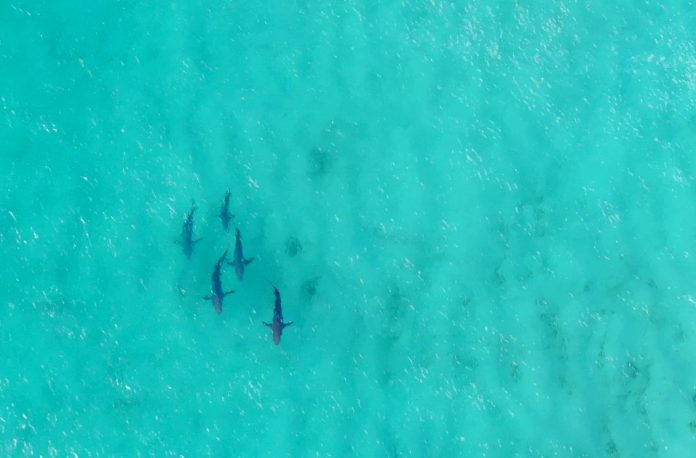A trial using drones to spot sharks only spotted three of the ocean predators near popular Sunshine Coast beaches.
Drones were trialed over two years in five locations across the state, including Alexandra Headland and Coolum North.
The eyes in the sky are designed to spot and monitor the movement of sharks, triggering the closure of beaches if necessary.
The drones also can be used to help rescue swimmers in trouble and search for missing people.
The State Government has announced the drone trial will be extended for another three years and expanded to include Noosa Main Beach, with funding of $6 million over the next three years to 2025.
The SharkSmart drone trial started in September 2020 in partnership with Surf Life Saving Queensland.
Since then SLSQ has spotted 174 sharks across the five beaches, including 48 large sharks estimated to be more than 2m in length.
On the Sunshine Coast, only three sharks were seen at Alexandra Headland, with one larger than 2m. There were zero sharks spotted at Coolum North.
North Stradbroke Island had the highest spotting rate, with 94 sharks and 22 of them larger than 2m.
Burleigh Beach was next with 73 sharks, of which 23 were over 2m.
Fisheries minister Mark Furner said the government was committed to testing new technology to keep beachgoers safe as well as maintaining current shark deterrents such as nets and drumlines.
“The funding will see the trial continue at beaches on the Gold Coast, Sunshine Coast, North Stradbroke Island and Magnetic Island with planning well underway to bring four new sites, Rainbow Beach, Bribie Island, Noosa Main Beach, and Kurrawa Beach, online before the 2022 summer school holidays,” Mr Furner said.

SLSQ chief executive officer Dave Whimpey said the drones had already proved to be useful as both a shark mitigation tool and to aid the work of surf lifesavers.
“Shark spotting drones are a 21st century solution that gives our lifesavers more capacity to spot and monitor sharks thereby enhancing the safety of water users,” Mr Whimpey said.
“On four occasions, beaches at North Stradbroke Island and Burleigh Beach were temporarily closed to manage the risk to swimmers.
“Additionally, the drones have been used to rescue swimmers from rips and to assist with missing person searches, highlighting their value as an holistic beach safety tool.
“Continuing and expanding the SharkSmart drone trial will provide further valuable data about shark behaviour at some of Queensland’s most popular beaches.”
Mr Furner said Queensland’s Shark Control Program (SCP) played a vital role in providing a level of protection to water users at beaches year-round.
“Protection of human life is the Palaszczuk Government’s first priority, we are continually working on innovation and improvements to the program and our ongoing partnership with SLSQ is delivering results,” Mr Furner said.
“We asked the community for their views about the SharkSmart drone trial and there is significant support for the continued use of drones for shark spotting at Queensland beaches, so we are keen to further explore their capabilities and effectiveness.
“However, everyone should do their part to be SharkSmart whenever they’re on or in the water and be responsible for their safety and the safety of others in the water.”
The extended drone surveillance trial does not include any changes to the Shark Control Program’s nets or drumlines.





